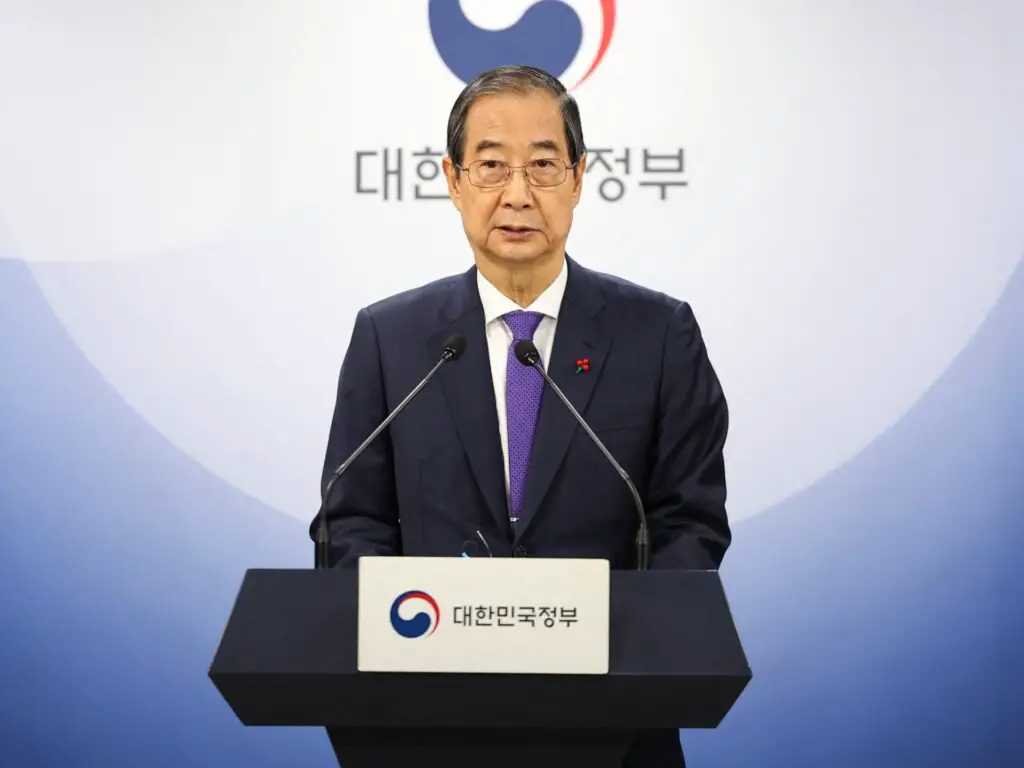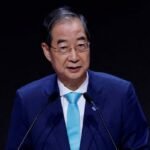The opposition wants to impeach Han Duck-soo because he does not appoint judges to the Constitutional Court.
South Korea’s largest opposition party has filed a motion to impeach the incumbent president. Intensification of political unrest in the East Asian country.
The Democratic Party said it submitted the request to the court on Thursday because of incumbent Chairman Han Duck-soo’s reluctance to fill three vacancies in the Constitutional Court Review of rebellion allegations against the accused President Yoon Suk-yeol.
“We have submitted the motion … and will present it to the plenary session today,” lawmaker Park Sung-joon told reporters in the National Assembly about the action against Han. “We will vote on it tomorrow.”
South Korea was plunged into political crisis after President Yoon Suk-yeol declared martial law on December 3.
Yoon was removed from office by parliament on December 14 over the dramatic statement, but a Constitutional Court ruling upholding the legislature’s decision is necessary to complete the impeachment process.
However, the court is currently short of three judges. It can continue with its six members on the bench, but a single dissenting vote would reinstate Yoon.
The opposition-controlled National Assembly passed motions calling for the appointment of the three judges as the court prepares to begin deliberations on whether to fire or reinstate Yoon.
The vote came shortly after Han reiterated in a televised statement that he would not appoint the justices without approval from both parties – leaving the parties at an impasse.
The opposition Democratic Party therefore wants the incumbent president to also be indicted.
Han’s refusal to formally appoint the three judges proves he “does not have the will or qualifications to uphold the constitution,” Democratic Party leader Park Chan-dae told reporters.
Han insisted he would only confirm the judges’ appointments if his ruling People Power Party (PPP) and the opposition reached a compromise on the nominees.
“The consistent spirit reflected in our Constitution and laws is that a sitting president should focus on maintaining the stability of governance to help the country deal with the crisis, while refraining from “exercise significant powers reserved exclusively for the president, including appointments to constitutional institutions,” Han argued.
Escalating crisis
If the opposition approves the motion to impeach Han in Friday’s vote, it would be the first time that democratic South Korea has impeached a sitting president. Finance Minister Choi Sang-mok would step in as acting president.
Earlier this week, Han rejected opposition calls for special legislation that would establish two independent investigative bodies to investigate Yoon’s short-lived imposition of martial law and corruption allegations against his wife Kim Keon-hee, prompting Democratic Party warnings of impeachment proceedings.
The impeachment motion said Han “deliberately avoided the special investigation to investigate those involved in the uprising and clearly expressed his intention to reject the appointment of three judges of the Constitutional Court.”
Such actions are “a breach of a public official’s duty to uphold the law … and serve the public,” it said.
Yoon did it repeatedly Avoided law enforcement inquiries appeared for questioning on charges of rebellion and also obstructed attempts to search his office.
The Senior Officials Corruption Investigation Bureau, which is leading a joint investigation with police and military authorities, summoned Yoon for questioning this Sunday after he failed to comply with an earlier request to appear on Christmas Day.





